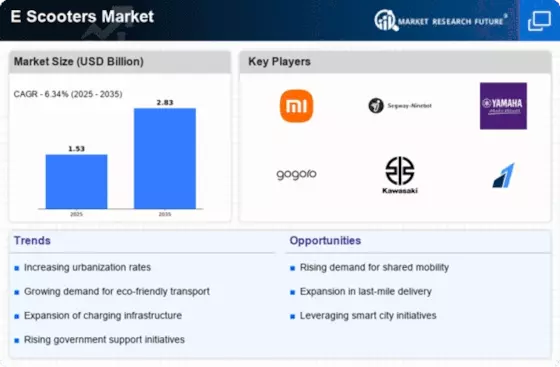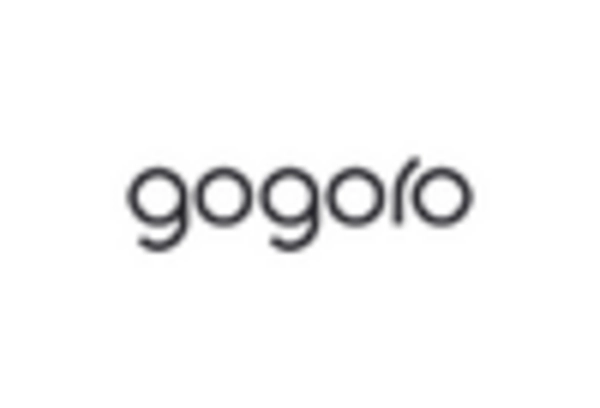Market Trends
Key Emerging Trends in the middle-east-and-africa Electric Scooter Market
The Middle East & Africa (MEA) electric scooter market has witnessed significant growth in recent years, driven by various market trends. One prominent trend is the rising demand for eco-friendly transportation solutions amidst growing concerns about environmental sustainability. Electric scooters offer a cleaner alternative to traditional petrol-powered vehicles, appealing to environmentally-conscious consumers across the region. This shift towards eco-friendly transportation is further fueled by government initiatives promoting the adoption of electric vehicles (EVs) and implementing stricter emission regulations.
Another key trend shaping the MEA electric scooter market is the increasing urbanization and congestion in major cities. As urban populations continue to swell, the need for efficient and convenient modes of transportation becomes more pressing. Electric scooters provide a practical solution for navigating congested city streets, offering flexibility and maneuverability that traditional vehicles may lack. Additionally, the compact size of electric scooters makes them ideal for short-distance commutes, allowing riders to bypass traffic jams and reach their destinations quickly.
Furthermore, advancements in technology have played a significant role in driving the adoption of electric scooters in the MEA region. The proliferation of smartphone apps and GPS technology has facilitated the emergence of electric scooter sharing services, enabling users to locate, unlock, and rent scooters conveniently through their mobile devices. This innovative business model has gained traction in several MEA cities, offering a cost-effective and accessible transportation option for residents and tourists alike.
Moreover, the growing popularity of electric scooters among the younger demographic is a notable trend in the MEA market. Millennials and Generation Z consumers, in particular, are drawn to the convenience and affordability of electric scooters for short trips and leisure activities. The sleek and stylish designs of modern electric scooters also appeal to this demographic, aligning with their preferences for trendy and technologically advanced products.
Additionally, the COVID-19 pandemic has influenced market trends in the MEA electric scooter market. The need for social distancing and minimizing contact with shared surfaces has led to increased interest in personal mobility solutions, such as electric scooters. As people seek alternatives to public transportation and ridesharing services, electric scooters offer a safe and hygienic mode of transportation for individual use.
Furthermore, the MEA electric scooter market is witnessing intense competition among manufacturers and service providers, leading to product innovations and strategic partnerships. Companies are investing in research and development to enhance the performance, range, and safety features of electric scooters, aiming to differentiate their offerings in a crowded market landscape. Additionally, collaborations between electric scooter manufacturers and urban authorities are being forged to address regulatory challenges and infrastructure requirements for sustainable electric mobility.
In conclusion, the Middle East & Africa electric scooter market is experiencing significant growth driven by various market trends, including the demand for eco-friendly transportation, urbanization, technological advancements, changing consumer preferences, the impact of the COVID-19 pandemic, and competitive dynamics. As governments, businesses, and consumers increasingly prioritize sustainability and convenience, electric scooters are poised to play a pivotal role in shaping the future of urban mobility in the MEA region.


















Leave a Comment